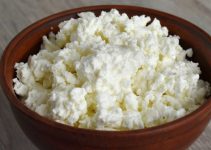Watermelons are a sweet and refreshing fruit in the Cucurbitaceae family.
In addition to providing us with hydration, it provides us with essential nutrients such as minerals, vitamins, and antioxidants.
Below you will find information about the benefits that watermelon brings to our health, its nutrient content, and how to prepare it.
Watermelon Benefits

First, watermelon is composed of 90% water, so it is an exceptional fruit to promote hydration of the body.
On the other hand, it contains antioxidants that fight free radicals, which cause oxidative damage in the body and increase the risk of cancer and heart disease.
Below you will find some benefits of consuming watermelon.
1. Asthma Prevention
According to experts, asthma can be developed by excess free radicals.
Thus, certain antioxidants (such as vitamin C) in the lungs reduce asthma’s risk.
A cup of watermelon provides us with 12.5 mg of vitamin C, that is, between 14% and 16% of the daily value.
2. Blood Pressure
One study found that watermelon extract regulates blood pressure in obese and early hypertension people. The reason for this would be the content of L-citrulline and L-arginine (two antioxidants) that watermelons have.
In addition, watermelons provide us with lycopene. According to one review, lycopene helps reduce inflammation caused by high good cholesterol levels (HDL).
On the other hand, a cup of watermelon gives us 3.08 mg of phytosterols. According to a study, consuming 2 grams of this plant compound per day helps reduce bad cholesterol (LDL) levels.
3. Cancer
According to the National Cancer Institute, free radicals play a fundamental role in cancer development.
Watermelon provides antioxidants that help fight free radicals and thus prevent cancer.
In addition, some studies have found that ingesting lycopene reduces the risk of prostate cancer.
4. Digestion And Regularity
Watermelons provide us with a large amount of water and fiber, which is beneficial for the health of the digestive system.
It can be very beneficial for your digestion if you consume it regularly.
5. Hydration
Watermelon is composed of 90% water, therefore helping the body to be hydrated.
Watermelon is a fruit that is high in potassium. Potassium is an essential mineral that helps regulate your body’s electrolyte levels. It also has other benefits, including helping to prevent muscle cramps.
It can be consumed as a snack to obtain all its health benefits.
6. Brain And Nervous System
Watermelon also provides us with an antioxidant called choline.
Choline is related to the following functions: muscle movement, memory, and learning, early brain development, the transmission of nerve impulses, and maintenance of the structure of cell membranes.
While one theory holds that choline may delay dementia in people with Alzheimer’s, more studies are still needed.
7. Muscle Soreness
Watermelon and its juice help reduce muscle pain and muscle fatigue in athletes.
In a study conducted on athletes, researchers found that consuming watermelon juice with the addition of L-citrulline two hours before running a half-marathon relieves muscle soreness after the race.
8. Skin
Watermelon is a rich source of vitamin C, which is essential for producing collagen.
Collagen protects the cell structure and improves the immune system.
According to research, vitamin C improves skin health, delays aging damage, and promotes wound healing.
9. Metabolic Syndrome
In a study carried out in 2019, researchers found that watermelon consumption helps improve the symptoms of metabolic syndromes, such as obesity and cardiovascular measures.
In this study, 33 overweight people ate either 2 cups of watermelon or low-fat cookies for four weeks.
Those who consumed watermelon had:
- Less hunger.
- Decrease in body weight.
- Higher levels of antioxidants in the blood.
- Decreased systolic blood pressure.
- Improved waist-to-hip ratio.
10. Diuretic Properties
A study carried out on rodents found that the diuretic action of watermelon is as effective as the action of a pharmacological diuretic (furosemide).
In this way, the consumption of watermelon can be a realistic option for those who have excess water and salt in the body.
Nutrition Facts
One cup of watermelon (about 154 g) contains:
- Calories: 46.2 (1800 – 3000 Daily Value)
- Fiber: 0.6 g (22.4 – 33.6 of DV)
- Carbs: 11.6 g (130 of DV)
- Calcium: 10.8 mg (1000 – 1200 of DV)
- Phosphorus: 16. 9 mg (700 of DV)
- Vitamin A: 43.1 mcg (700 – 900 of DV)
- Vitamin C: 12.5 mg (75 – 90 of DV)
- Potassium: 172 mg (4700 of DV)
- Folate: 4.6 mcg (400 of DV)
- Choline: 6.3 mg (425 – 550 of DV)
- Lycopene: 6980 mcg
- Beta-carotene: 467 mcg
- Lutein and zeaxanthin: 12.3 mcg
- Phytosterols: 3.08 mcg
Serving Tips
You can incorporate the benefits of watermelon by consuming:
- Salads
- Juices
- Roasted seed
- Smoothies
When choosing a watermelon, it is essential to consider that it must be firm, heavy, and symmetrical.
It is essential to look at the labels of watermelon juices as they may have added sugars.
Risks
While risks aren’t familiar, consuming too much watermelon can lead to:
- Allergy: some of its symptoms are swallowing difficulties, hives and swelling.
- Diabetes: because watermelon is a fruit with a high sugar content, people with diabetes should moderate its consumption. In addition, it is recommended not to exceed consumption as it increases the risk of glucose peaks.





